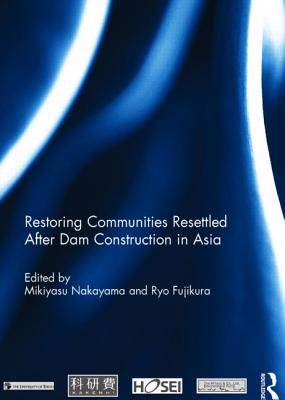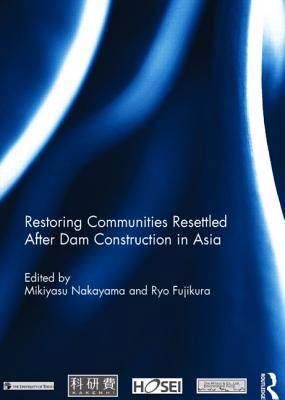
- Retrait gratuit dans votre magasin Club
- 7.000.000 titres dans notre catalogue
- Payer en toute sécurité
- Toujours un magasin près de chez vous
- Retrait gratuit dans votre magasin Club
- 7.000.0000 titres dans notre catalogue
- Payer en toute sécurité
- Toujours un magasin près de chez vous
Restoring Communities Resettled After Dam Construction in Asia
Description
The rapid economic expansion and population growth of developing countries in Asia has led to increasing demands for water and energy. To meet these demands, large dam development projects have been completed, which has inevitably caused involuntary resettlement. In order to support these projects, dam developers must find appropriate ways to ensure adequate livelihood reconstruction for resettled individuals. Resettlement causes both short-term and long-term effects (both positive and negative) for the relocated populations, meaning that in order to evaluate the larger impact of such projects long-term post-project evaluations must be carried out. However, post-project evaluations by international donors have typically been conducted within a few years after completion; the long-term impact of such projects is seldom evaluated.
This book aims to fill this gap. A study team composed of researchers from Indonesia, Japan, Lao PDR, Sri Lanka, and Turkey has conducted ten case studies focusing on resettled individuals' satisfaction, opportunities offered, and income generation. The volume provides an overview of the ten case studies, which were carried out across five countries. It also discusses how a compensation programme should be designed and what sort of options should be presented to resettled individuals for their maximum benefit.
This book was originally published as a special issue of the International Journal of Water Resources Development.
Spécifications
Parties prenantes
- Editeur:
Contenu
- Nombre de pages :
- 128
- Langue:
- Anglais
- Collection :
Caractéristiques
- EAN:
- 9780415719100
- Date de parution :
- 07-11-13
- Format:
- Livre relié
- Format numérique:
- Genaaid
- Dimensions :
- 180 mm x 249 mm
- Poids :
- 408 g

Les avis
Nous publions uniquement les avis qui respectent les conditions requises. Consultez nos conditions pour les avis.





